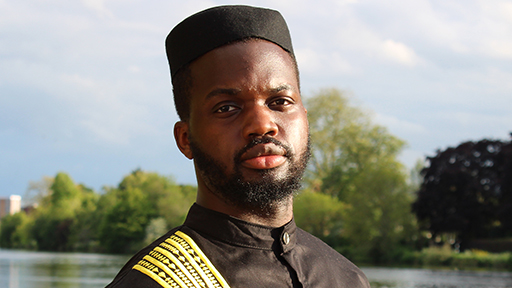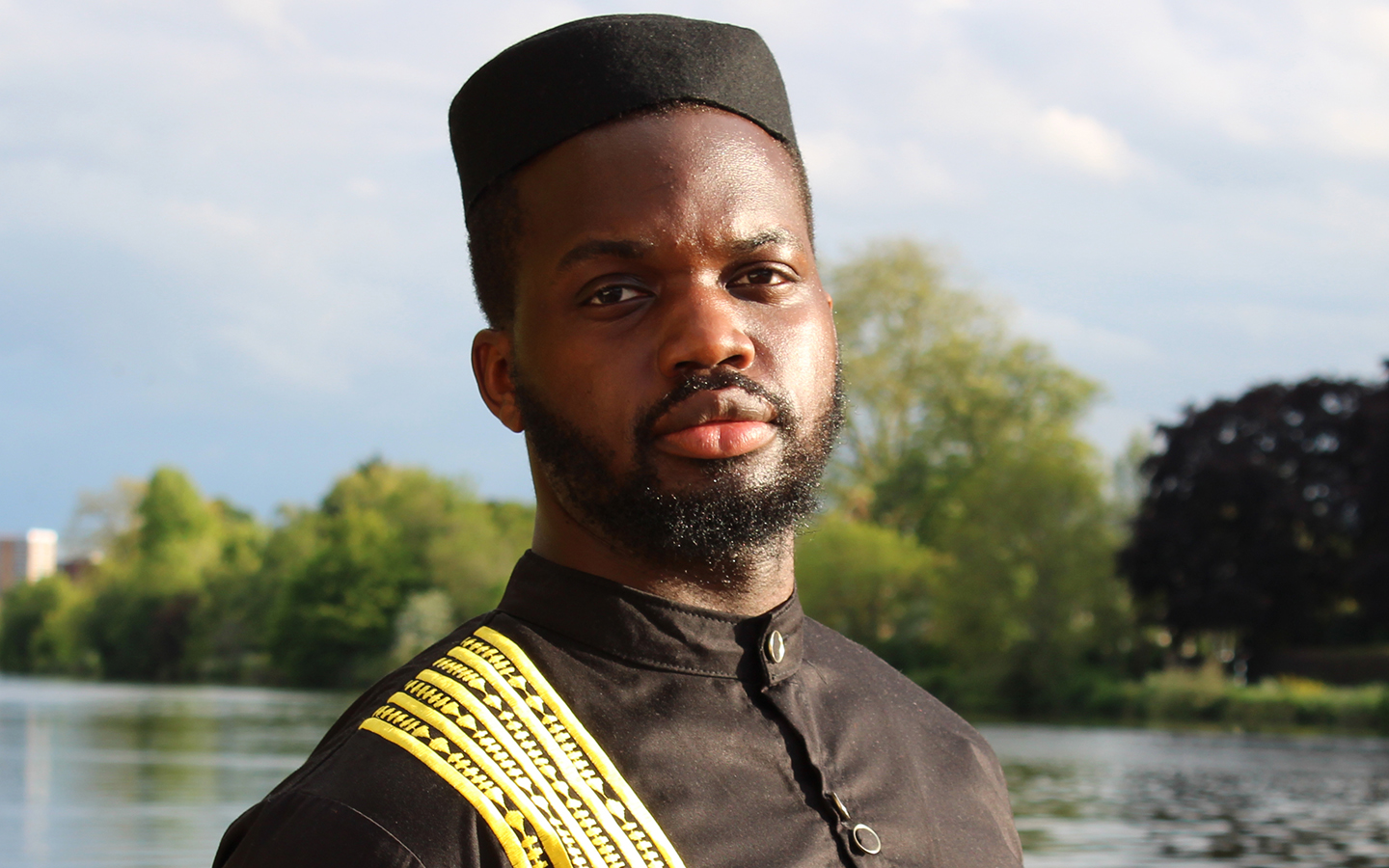Sign up for updates
Interested in studying at the University of Hertfordshire and want to sign up to our mailing list to learn more about our facilities, living in the UK and student life? Use the form below and our team will also keep you informed of key updates such as events near you, applications opening and more!
BA (Hons) 2D Digital Animation
Key information
-
Typical offer:
Entry requirements -
Fees: See below
Full details -
UCAS code: W618
-
Institute code: H36
-
Study abroad option
-
Work placement option
Find out more
Why choose this course?
- Best 2D Animation School in Europe (The Rookies Top Global Creative Schools, 2024)
- 8th in the UK for Animation and Game Design (Guardian University Guide. 2024)
- 7th in the UK for computer games and animation (Daily Mail University Guide, 2025)
You want to join the No.1 Animation School in Europe (and No.2 in the World) as acclaimed by The Rookies Awards 2024.
Described by the Rookies as an ‘innovative and enterprising university’ our students regularly achieve critical acclaim for their work. Our award-winning 2D animation course produces outstanding graduates, renowned for their creativity, technical skills and employment potential. Our digital animation programme as a whole, is accredited by The Rookies, SideFX and CILECT. This means, you’ll be joining a department that’s gained international recognition for training the animators of the future. Learn more about our Rookies ranking and view examples of our student work. Our facilities will also help you to thrive. You’ll have access to dedicated PC labs, kitted out with everything you need to bring your creations to life. The Learning Resource Centre contains clones of our animation labs (software and hardware) so if you want to continue your animation studies late at night or during the weekend you can. Plus, you can use our motion capture suite, digital photography and filmmaking equipment to work on your own projects. Kickstart your future by graduating from an internationally renowned animation school.
It’s time to take your talent and imagination to the next level
You want to produce stunning animations and discover your unique style. You want to immerse yourself in character design, motion graphics and interactive storytelling. You dream of creating the illusion of movement and you have a sketch book full of ideas. Now’s the time to master your dreams. We’ll teach you all aspects of digital animation development and the production process. You’ll develop specialised skills in storyboarding, keyframing and colouring. You’ll spend time mastering digital puppet animation, motion graphics and 2D game design. Extend your knowledge of traditional animation techniques and apply them to today’s digital world. You’ll produce ambitious work showing an expert understanding of technique, software proficiency and high production values. Your wide skillset will be in high demand, allowing you to move between companies and adapt to the varied demands of the industry. This is your chance to be creative. To tell that story. This is your chance be you.
You want to join an exciting animation community
You want to train under the guidance of experienced animators. To learn from artists and authors in the comics, film and games industries who’ve worked on projects including The Hobbit, Tintin, Tom & Jerry and The Avengers. We’ll share our experience and unique insight into the animation industry so you can develop your skills with confidence. You’ll have the opportunity to work on live projects to gain a working knowledge of the industry and begin to build a network of industry contacts. When you graduate, we’ll invite you to join our active alumni community, many of whom have senior positions in the animation industry.
What's the course about?
We deliver a mix of teaching methods, from project work to software and art-based workshops and lectures. You’ll be assessed on group and individual project work. We’ll ask you to submit portfolio submissions, sketches, storyboards, 2D animations and presentations. Plus, you’ll develop your analytical thinking, critical curiosity and easy writing skills.
In your first year, you’ll benefit from common modules within the wider animation programme, gaining valuable knowledge of the digital media industry. You’ll study alongside peers on comics and concept art, games, 3D animation and visual effects, expanding your network from day one. We’ll teach you the fundamental principles of 2D animation. You’ll spend time storyboarding and perfecting your technique. Together we’ll explore digital illustration techniques. You’ll practice life drawing, designing characters and environments. You’ll research animation and film history to bring cultural context to your craft. At the end of this year you’ll have the choice to switch to a different animation degree course if your passion has led you in a new direction.
In your second year, you’ll develop your individual and illustrative style. You’ll take part in acting workshops to gain an insight into how characters move and display emotions. You’ll apply this knowledge to your animations, creating believable characters and sequences of movement. You’ll work on simulated real-world briefs, exploring motion graphics, idents and interactive media. You'll also create your first short film. The best will be invited to be screened in our Animation Exposé show at the end of the year. View the show’s live stream from 2020. The best will be invited to be screened in our Animation Exposé show at the end of the year. Plus, we’ll encourage you to enter your work into international competitions like The Rookies.
In your third year, you’ll write your dissertation on an area of popular culture, linked to 2D animation, that fascinates you. Plus, you’ll immerse yourself in an ambitious final film project. Be authentic. Be brave. You’ll take your own concept through all stages of production, showing excellent project management and leadership qualities. Your animated short film will showcase your talent and be screened in our Animation Exposé show. You can enter it for awards judged by a panel of industry experts. Previous judging panels have included companies such as Blue Zoo, Blink Ink, Golden Wolf, The Animation Guys and Slurpy. Plus, we’ll encourage you to enter your work into The Rookies and other international competitions. When you graduate, you’ll have an impressive showreel and website to launch your career to prove yourself to be an animator of tomorrow.
Your main campus is College Lane
This is where the creative arts, science and health-related subjects are based. This means you’ll share the campus with future nurses, scientists, artists and more. You can use the common rooms to relax with friends, work out in the 24-hour gym or have a drink in our on-campus pub or cafes. We also have restaurants for you to eat in or grab something on the go. Our Learning Resources Centres are open 24/7, which means you can study whenever suits you best. Want to pop over to the other campus? You can take the free shuttle bus or walk there in just 15 minutes.
What will I study?
Degree programmes are structured into levels, 4, 5 and 6. These correspond to your first, second and third/final year of study. Below you can see what modules you’ll be studying in each.
Phil is amazing, he’s always asking me for work so he can provide feedback.
Check out our student blogs

Alumni Stories
Hamid Ibrahim
| Current job role | Co-founder and Creative Director at Kugali Media |
|---|---|
| Course studied | BA (Hons) Digital Animation, 2017 |

Career Success
Ugandan-born Hamid Ibrahim chose to pursue his life-long passion for creativity by studying Digital Animation at Herts. After graduating in 2017, Hamid joined the visual effects studio Moving Picture Company, where he worked on feature films such as the live-action remake of the Lion King in 2019. Alongside this, in 2017 he also co-founded his entertainment company, Kugali Media, before pursuing it full-time. Kugali tells stories inspired by African culture, through art, comic books, and augmented reality.
In 2020, Walt Disney Animation Studios announced that it was to join forces with Hamid Ibrahim, and his entertainment company Kugali, to create an original African sci-fi series for Disney+. In what was the first of its kind collaboration for Disney Animation, the series, titled Iwájú, explores the themes of class, innocence, and challenging the status quo.
Hamid says, 'I still remember watching the Lion King (1994) as a kid when I was growing up. Hearing them speaking Swahili, a language that I speak myself, in a big-picture animation like that was inspiring. From that moment on I knew what I wanted to do; it was my dream to share the stories of my people with the world.'
Herts Learning
'The skills I learned at the University of Hertfordshire were vital to my career. My course gave me a solid foundation where I was taught how to create beautiful animations and visual effects, learning from tutors who themselves had worked on big Hollywood blockbusters.'
Looking to the future of his professional life, he says, 'I’m excited about Kugali's collaboration with Disney and I’m looking forward to building the world of Iwájú.'




